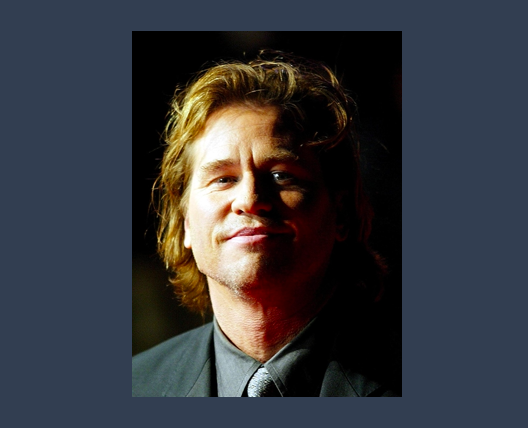
Hollywood icon Val Kilmer, remembered for his iconic roles as Iceman in Top Gun, Jim Morrison in The Doors and Batman in Batman Forever, died at the age of 65.
American actor Val Kilmer has died at the age of 65 from complications of pneumonia, as confirmed by his daughter Mercedes Kilmer to The New York Times. The actor, whose career saw soaring highs and difficult lows, had been battling the long-term effects of throat cancer since 2014, which left him without his voice but never without his artistic fire.
A Promising Start and Meteoric Rise
Born on December 31, 1959, in Los Angeles, Val Edward Kilmer seemed destined for the stage. At just 17, he became the youngest student ever accepted into the drama division at Juilliard. He made his stage debut co-writing and performing in How It All Began, and quickly built a strong reputation in theater before transitioning to film.
His cinematic career began in 1984 with the satirical spy comedy Top Secret!, where he played an Elvis-like rock singer. The role revealed his comic timing and his singing talent—something he would draw on again in later roles.
Kilmer’s international breakthrough came in 1986 with Tony Scott’s Top Gun, where he played the cocky and unflappable fighter pilot Tom "Iceman" Kazansky. Pitted against Tom Cruise’s Maverick, the film etched one of cinema’s most iconic rivalries into pop culture history.
From Rock Legend to Superhero Icon
Kilmer quickly proved himself to be a chameleon on screen. In 1991, he delivered a haunting performance as rock legend Jim Morrison in Oliver Stone’s The Doors. He sang the film’s tracks himself, fully immersing into the tortured psyche of the rock icon—earning praise for his dedication, even as critics were split on the film itself.
In 1995, Kilmer wore the cape and cowl in Batman Forever, becoming the third actor to portray Bruce Wayne on screen. That same year, he starred in Michael Mann’s crime masterpiece Heat, sharing the screen with Al Pacino and Robert De Niro. Director Mann later praised Kilmer’s "range and extraordinary ability to embody a character with depth and intensity."
The Rise, the Rift, and the Reputation
Despite his talent, Kilmer’s career began to suffer from stories of on-set tensions and difficult behavior. In 1996, he starred alongside Marlon Brando in The Island of Dr. Moreau, a production plagued by chaos. Behind-the-scenes footage later revealed heated disputes with director John Frankenheimer, cementing his reputation as a challenging presence. Around the same time, Entertainment Weekly featured him on their cover with the headline: "The Man Hollywood Loves to Hate."
As the 2000s began, Kilmer’s career became a patchwork of modest roles and under-the-radar gems. He drew critical praise for The Salton Sea (2002) and Kiss Kiss Bang Bang (2005), while also appearing in animated films like The Prince of Egypt and Planes. Though he never fully returned to mainstream stardom, he remained a figure of fascination in the industry. "There’s something different in Val that draws the eye," said director Oliver Stone in a 2007 interview.
The Illness and a Touching Comeback
In 2015, Kilmer was diagnosed with throat cancer. A tracheotomy left his voice severely impaired, but not his will to continue. He performed on stage in his one-man show Cinema Twain, portraying Mark Twain with humor and defiance, and remained active in indie cinema. In Song to Song by Terrence Malick and The Snowman, his roles were modified or dubbed to accommodate his health.
His return to the big screen in Top Gun: Maverick (2022) was both triumphant and poignant. With the help of AI voice reconstruction, Kilmer reprised the role of Iceman, now a high-ranking admiral battling illness. His scene with Tom Cruise, charged with real-life resonance, moved audiences and critics alike.
A Creative Spirit and Poetic Soul
Beyond acting, Kilmer was a multifaceted artist—deeply engaged in poetry, painting, music, and nature. In 2021, the documentary Val, composed largely of personal home videos and archives, premiered at Cannes to acclaim. The film presented an intimate, unfiltered look at a complex man: fierce, fragile, whimsical, and always original. It also touched on the tragic loss of his younger brother, who drowned in 1977—an event that deeply shaped Kilmer’s inner world.
Reflecting on his career in a 2012 Hollywood Reporter interview, Kilmer said, "My career plan was to get lucky—and I did. The second plan was to get lucky again. That one didn’t work." Still, he remained philosophical and grateful, writing on his personal website: "I’ve lived a beautiful life. For more than half a century, I’ve pursued my craft in every form I could."
Hollywood Remembers an Unforgettable Talent
Tributes flooded in after his death. Michael Mann called him "a deeply expressive actor with an unshakable sense of truth." Josh Brolin wrote on Instagram, "You were sharp, bold, creative—a firecracker. They don’t make them like you anymore."
Kilmer passed away on April 1, 2025, surrounded by family. He is survived by his children, Mercedes and Jack. Though his voice may have faded, his presence—on screen and in memory—remains unmistakably vivid.




Comments